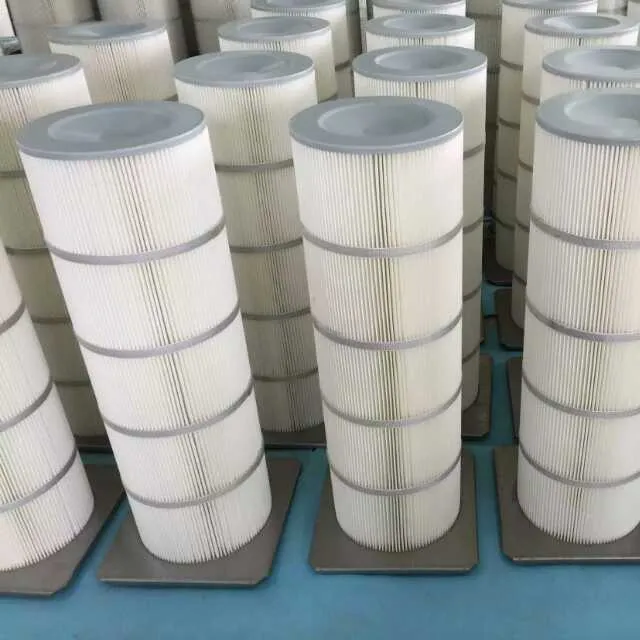 Tel:
+8615930870079
Tel:
+8615930870079
دسمبر . 18, 2024 20:12 Back to list
hepa cartridge filter
Understanding the Importance of HEPA Cartridge Filters
In today's world, where air quality has become a significant concern due to pollution and allergens, HEPA (High Efficiency Particulate Air) filters have emerged as essential components in various air filtration systems. HEPA cartridge filters are designed to trap a wide array of particles, ensuring cleaner and healthier air for environments such as homes, hospitals, and industrial settings. This article delves into the significance of HEPA cartridge filters, their mechanism, and their applications.
What is a HEPA Filter?
A HEPA filter is defined by its ability to capture at least 99.97% of particles that are 0.3 microns in size. This includes dust, pollen, pet dander, mold spores, and even smoke, making these filters highly effective against common allergens and pollutants. The design of HEPA filters consists of a mat of randomly arranged fibers, usually made from glass fibers, which work together to intercept various particles as air passes through.
Mechanism of HEPA Cartridge Filters
HEPA cartridge filters function through three primary mechanisms interception, impaction, and diffusion.
1. Interception occurs when particles follow the airflow and come into contact with fibers. If a particle gets close enough to a fiber, it will adhere to it and be trapped. 2. Impaction deals with larger particles that can’t follow the airflow and collide with the fibers instead, hence being stuck and caught in the filter. 3. Diffusion primarily affects smaller particles, particularly those smaller than 0.1 microns. These particles move erratically due to their small size and are more likely to collide with filter fibers, leading to their capture.
These mechanisms work synergistically to ensure a high level of filtration efficiency, making HEPA cartridge filters vital in maintaining air cleanliness
.Applications of HEPA Cartridge Filters
hepa cartridge filter

HEPA filters are widely used across various sectors.
1. Home Use Many household appliances, such as vacuum cleaners and air purifiers, incorporate HEPA filters for keeping indoor air clean. These filters significantly reduce the concentration of airborne allergens, beneficial for individuals with asthma or allergies.
2. Healthcare Facilities Hospitals and clinics utilize HEPA filters in their HVAC systems, operating rooms, and patient rooms. They help in controlling airborne pathogens, thus playing a crucial role in infection control and ensuring patient safety.
3. Industrial Settings Industries that handle hazardous materials, such as pharmaceuticals and electronics, often rely on HEPA-filtered ventilation systems to maintain a clean environment and to protect workers from harmful airborne particles.
4. Automotive Many modern vehicles come equipped with HEPA filters within the cabin air system, ensuring passengers breathe healthy air by filtering out dust, pollen, and pollutants from outside.
Maintenance and Replacement
To ensure optimal performance, HEPA cartridge filters must be maintained properly. This includes regular checks to see if they require cleaning or replacement. A clogged filter can reduce airflow, making systems work harder and possibly leading to increased energy consumption. Generally, the lifespan of a HEPA filter varies based on usage but should typically be replaced every 6 to 12 months.
Conclusion
HEPA cartridge filters are more than just an accessory for air purification; they represent a crucial line of defense against airborne pollutants and allergens. Their remarkable ability to capture a wide variety of particles meets the modern demand for clean air in numerous environments, enhancing health and comfort for all. Whether in a home, healthcare facility, or industrial site, the presence of a reliable HEPA filter is indispensable for achieving higher air quality standards. Investing in HEPA filters is not just a choice; it is a commitment to a healthier living environment.
-
Types and Applications of Air Filtration CartridgesNewsJul.28,2025
-
The Role of Gas Turbine FiltersNewsJul.28,2025
-
Mastering Air Filter Cartridge UseNewsJul.28,2025
-
Advanced Turbine Filters for Modern Gas TurbinesNewsJul.28,2025
-
Cellulose Air Filter Cartridge Advantages in Dust FiltrationNewsJul.28,2025
-
Cellulose Filters for Air Particle ReductionNewsJul.28,2025

 Email:
Email:





